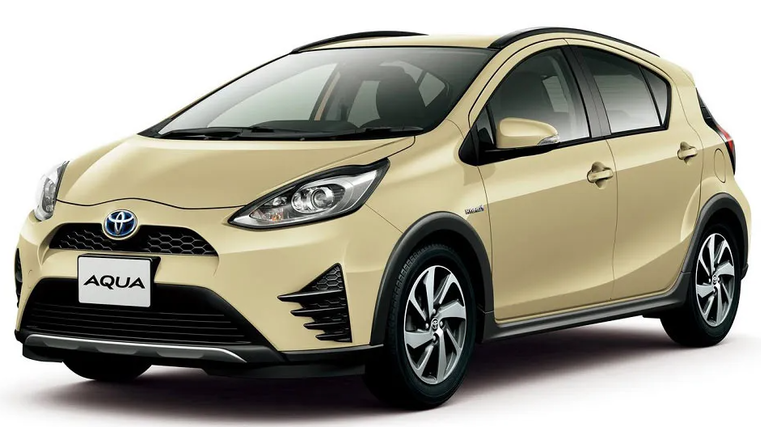Big CCD hit on petrol cars

An industry expert warns changes to the clean car discount (CCD) mean any petrol car that’s not a hybrid will be getting a penalty in two months’ time – except when it comes to some smaller models.
Kit Wilkerson, head of policy and strategy at the Imported Motor Vehicle Industry Association (VIA), says the overhauled feebates scheme, which comes into effect on July 1, is going to affect the bigger hybrids because of the credits they will no longer attract.
He adds there will continue to be discounts for small hybrids, with battery electric vehicles (BEVs) and plug-in hybrids (PHEVs) “being the best options” for importers of used cars from Japan.
Some light petrol hybrids will see their CCD rebates fall. For example, those for many models of the Toyota Aqua, pictured, will see credits of $1,700 decrease to $1,000 or $1,100, says Wilkerson.
Many heavier petrol hybrids will probably go into the zero band with no rebates or charges being applied. Some will start to be penalised.
“CO2 ratings of 150g/km is where penalties will start to apply on used imports, which is a normal-sized family car,” warns Wilkerson. “This will add significant market pressure to bring in cleaner cars.”
Impact on best-sellers
The most popular used-imported passenger vehicles when registered for the first time in New Zealand during the first quarter of 2023 were Toyota’s Aqua and Prius, the Mazda Axela, Toyota Corolla, Honda Fit and Nissan Note.
Autofile asked Wilkerson how these models may be affected after July 1 when the changes to the CCD start.
The Aqua will continue to attract rebates, but less, as a petrol hybrid. Model-year 2013 onwards is likely to receive a slightly lower discount. From model-year 2017 onwards, these will be about the same.
Toyota’s Prius PHEV will attract a higher rebate after Waka Kotahi’s system changes to align used plug-in hybrids with new PHEVs. This will also apply to PHEV variants of the Corolla and Nissan Note.
The Prius Alpha and pre-2012 models will fall into the zero band, while newer petrol hybrids will only see a slight decrease in credits.
When it comes to Mazda’s Axela, older models will start attracting heavy penalties. Model-year 2015 onwards will fall into the neutral zone or attract slight credits, depending on the variant.
Hybrid variants of the Corolla are likely to get slightly higher discounts than similar Aquas with others being landed with penalties. And Notes post-2012 will fall into the zero band with models before that year facing penalties.
Disability vehicles
A special rebate for low-emissions disability vehicles will be introduced on July 1 – $11,500 if it is a BEV, and $5,750 if a PHEV or hybrid. New and used imports will attract the same dollar amounts.
While this announcement looks like a win, the problem is there are no disability EVs available so it’s a “fake” win, says Wilkerson. “It looks great on paper, but no one will be able to take advantage of it.
“There is one model – Toyota’s Sienta – that’s available as a hybrid disability vehicle and there’s a waiting list for them. There’s a well-established importer who can only bring in two of them a year.
“We fear disability vehicles may not gain an exemption from the clean car standard [CCS] because it has been made to look like they have gained a great outcome from the changes to the CCD.
“Most people who buy them do so through grants. Their prices are increasing through penalties and levies, but the grants have not increased in value.
“Because of all this, many disability vehicles are still being sold at the same prices by dealers, so the clean-car policies mean they may no longer have viable business models.
“In the longer term, once EV and hybrid disability vehicles become available, the CCD announcement may be good for these types of vehicles, but right now it isn’t. We fear this could be used as a reason to not exempt them from the CCS when that’s reviewed.”





